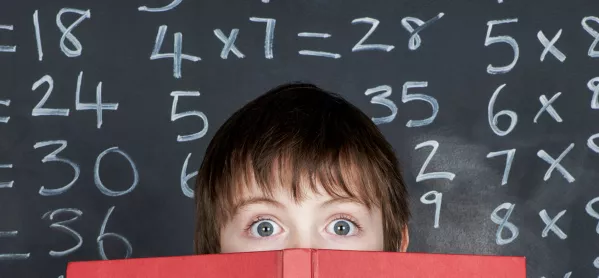The first results of the new key stage 2 multiplication tables check have been published today.
While the multiplication tables check (MTC) was meant to be introduced in June 2020, it only became statutory this year due to the disruption of the pandemic.
The Department for Education said it was designed to assess Year 4 pupils’ ability to fluently recall multiplication tables.
The multiplication tables check: key findings
Here’s what we learned:
- The mean average score of pupils who took the check was 19.8 out of 25 (79.2 per cent).
- And more than a quarter (27 per cent) of pupils achieved full marks.
- The majority of disadvantaged pupils (71.6 per cent) achieved an average score of 17.9, lower than the average score of 20 achieved by most pupils not on free school meals (82 per cent).
- A greater proportion of boys (80 per cent) achieved the average score than girls (78.4 per cent), the data shows.
- Native English speakers performed less well in the check than pupils with a first language other than English. Of pupils who took the check, the average score for those with a first language of English was 19.4 (77.6 per cent) while the average score for pupils with a first language other than English was 21.2 (84.8 per cent).
- Meanwhile, London was the highest-performing region, where over eight in 10 pupils achieved an average score of 20.9 (83.6 per cent).
- In other regions, the average score ranged from 19.1 in the South West to 19.9 in the North West and the West Midlands.
In 2019 it was warned that teachers were distorting the curriculum to ensure that their pupils performed well in the government’s controversial times tables check.
At the time, the NAHT school leaders’ union branded the check “an enormous waste of money”, while former chief maths adviser Dame Celia Hoyles raised concerns that the checks could cause anxiety and waste time and money.
New DfE maths hub funding
The DfE has also announced funding of “up to £59.3 million” to support the continuation of the Maths Hubs programme through to the end of the next academic year.
The programme, which started in 2014, aims to reach 11,000 primary and secondary schools by 2023
Schools minister Nick Gibb said: “Learning your times tables fluently is so important for children - both for their time in school and in day-to-day life, and today’s data gives us an important benchmark to build from over the years to come.”
Mr Gibb said maths would help pupils in life “doing essential calculations like how a higher base rate will affect your mortgage or working out the best multi-pack bargains in a supermarket”.
He added: “The additional funding for maths hubs announced today is also crucial, as we continue raising the standard of maths teaching across the country and driving towards our target for 90 per cent of children leaving primary school with the expected standard in mathematics and English by 2030.”





